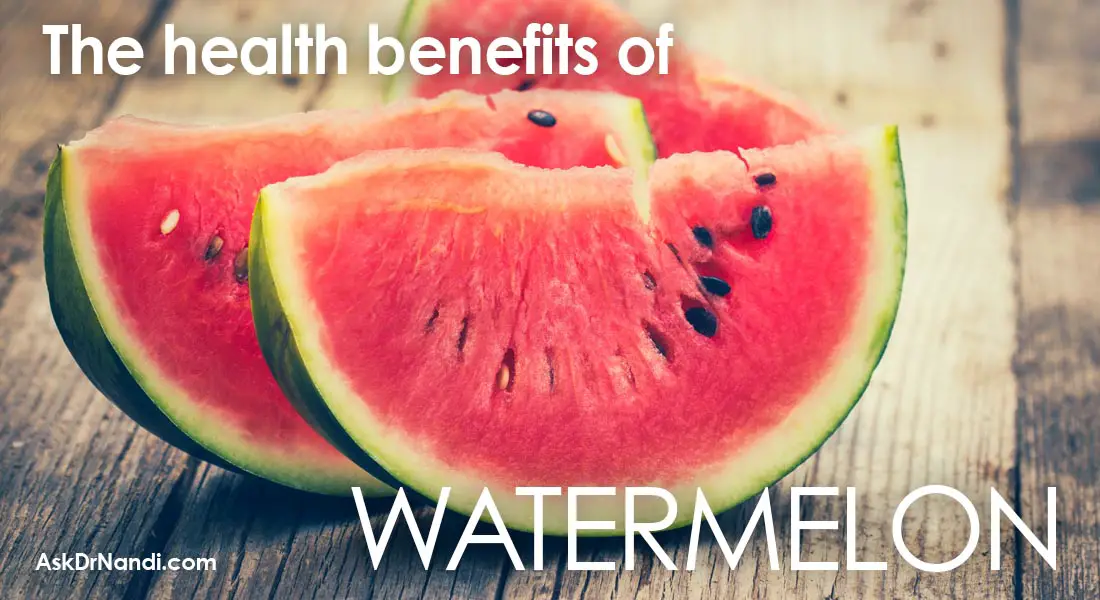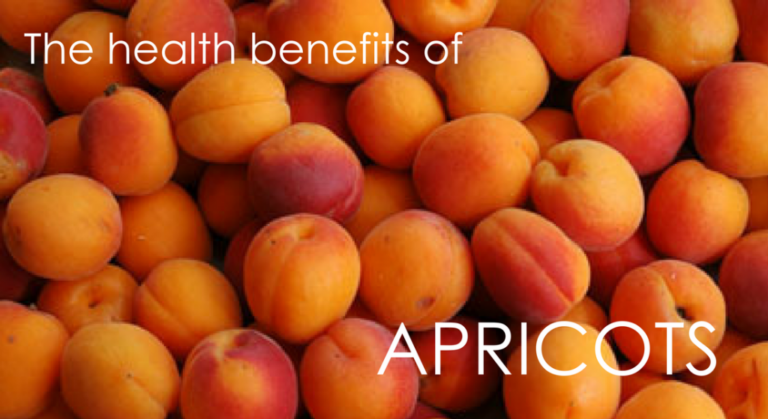As summer rolls in with its blistering heat, there’s nothing quite like the refreshing burst of a juicy watermelon. This vibrant fruit, beloved for its sweet and hydrating qualities, is not just a staple at picnics and barbecues—it’s also a powerhouse of health benefits. Packed with vitamins, antioxidants, and water, watermelon is more than just a delicious treat; it’s a nutritional marvel that offers a variety of health advantages, from hydrating the body to supporting heart health.
Watermelon Is Good for Your Heart
Watermelon contains a good amount of magnesium and potassium, which are known to be extremely important in lowering blood pressure. Scientists have found that potassium is a vasodilator that releases the tension of blood vessels and arteries. The lower tension helps stimulate blood flow and reduce the stress on the cardiovascular system. Watermelon also contains carotenoids that help prevent the hardening of artery walls and veins. It helps lower blood pressure and the chance of blood clots, heart attacks, strokes, and atherosclerosis. Watermelon contains lycopene which is a carotenoid. Research has found that lycopene improves cardiac function. Plus, watermelon is high in roughage which helps to reduce cholesterol and keep your heart safe.
Watermelon May Reduce Muscle Soreness
Research has found that watermelon is an effective and tasty way to reduce body temperature and blood pressure. Watermelon is a very popular item to eat every day to protect themselves from heatstroke. Watermelon is composed of nearly 90% water. Watermelon contains a very high amount of water which stimulates a release of excess liquid in the form of sweat. Sweat is the body’s way to reduce core heat during hot summer days.

Watermelon Is Good for Diabetics
Even though watermelon is sweet, watermelon is low in calories because most of the watermelon is water and roughage. Watermelon contains vitamin C and minerals such as potassium and magnesium, which aids in the proper functioning of insulin in the body. It helps to lower blood sugar levels. Also, researchers have found that watermelon contains arginine, which enhances the impact of insulin on blood sugar. If the diabetic person desires, they can also eat the rind from the watermelon, which is even lower in sugars.
Watermelon May Reduce Muscle Soreness
A recent study has found that watermelon juice can soothe sore muscles after a workout. Studies have found that athletes who consumed more than 16 ounces of watermelon juice an hour before working out had less muscle soreness and a lower heart rate within a day. Researchers believe that citrulline is the natural substance for these results. They suggest that it helps blood flow to the muscles, lowering soreness. Studies also show that citrulline helps to improve artery function and lower blood pressure.
Watermelon Is Good for Your Skin
Watermelon contains Vitamin A, which is excellent for your skin. Just a cup has nearly 1/4 of your daily recommended intake of Vitamin A. Research has found that Vitamin A aids in keeping your skin and hair moisturized and helps to encourage the growth of new collagen and elastin cells. Watermelon also contains Vitamin C, which is also beneficial for healthy collagen growth.

My Personal RX on Complementing Healthy Fruits with a Holistic Diet and Lifestyle
Incorporating healthy fruits like watermelon into your diet is a delightful way to enjoy natural sweetness while benefiting from essential vitamins and hydration. Watermelon is particularly rich in vitamins A and C, which are excellent for skin health and immune function. To maximize these benefits, it’s important to complement such healthy fruit choices with a holistic approach to your overall diet and lifestyle. As a healthcare professional, I advocate for a balanced and comprehensive plan that enhances the nutritional benefits of fruits like watermelon.
- Diverse Diet: Ensure your diet includes a variety of fruits and vegetables to get a broad spectrum of nutrients. Watermelon is great, but pairing it with other colorful fruits and veggies can maximize your intake of essential vitamins and minerals.
- Incorporate Immune Support: Alongside eating nutrient-rich fruits like watermelon, consider taking Immune Support supplements. These can help bolster your body’s natural defenses, especially beneficial during seasons when fresh fruits are less available.
- Stay Hydrated: While watermelon is highly hydrating, maintaining overall hydration is crucial for optimal health. Complement your intake of hydrating fruits with plenty of water throughout the day.
- Follow my Protocol for Holistic Health: Utilize my comprehensive 50-page Protocol to understand how to integrate various food groups effectively. This comprehensive resource offers insights into balancing your diet with physical activity, stress management, and proper sleep — all essential for holistic health.
- Mindful Eating: Practice mindful eating by paying attention to how different foods affect your body and mood. Noticing how your body responds to foods like watermelon can help you make more informed dietary choices.
- Regular Physical Activity: Complement your healthy diet with regular exercise. Physical activity can enhance your metabolism and improve your body’s ability to absorb and utilize the nutrients from your diet.
- Moderation and Balance: While fruits like watermelon are healthy, they should be part of a balanced diet that includes a variety of food groups. Ensure you’re also getting sufficient protein, fats, and carbohydrates to support all of your body’s needs.
Try These Delicious and Healthy Watermelon Recipes
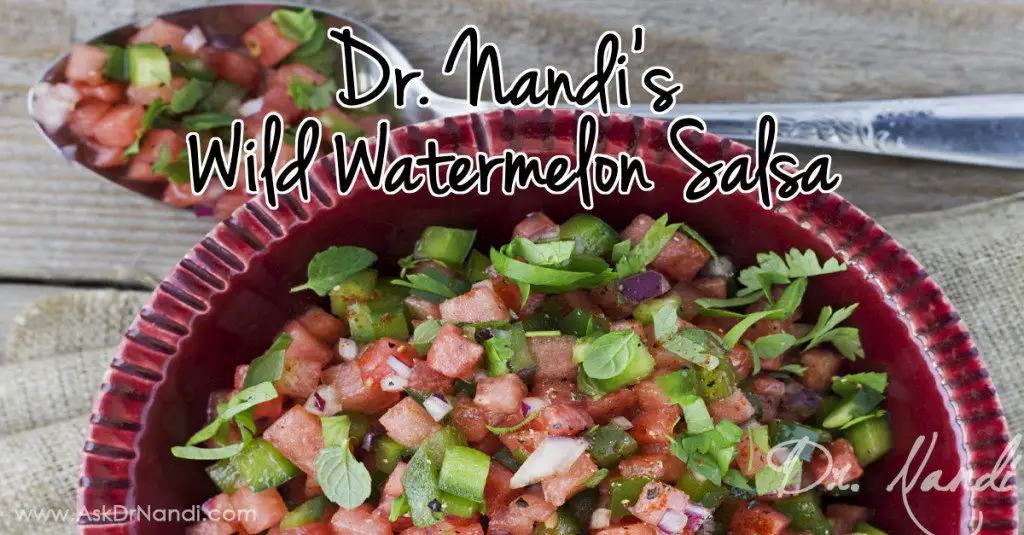 |
Wild Watermelon Salsa |
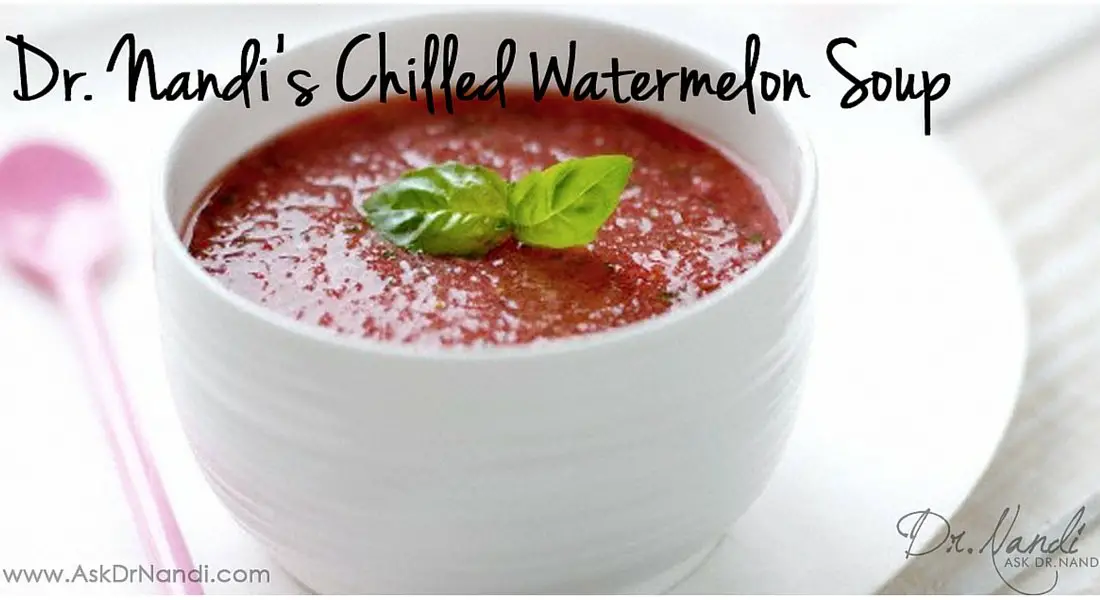 |
Dr. Nandi’s Chilled Watermelon Soup |
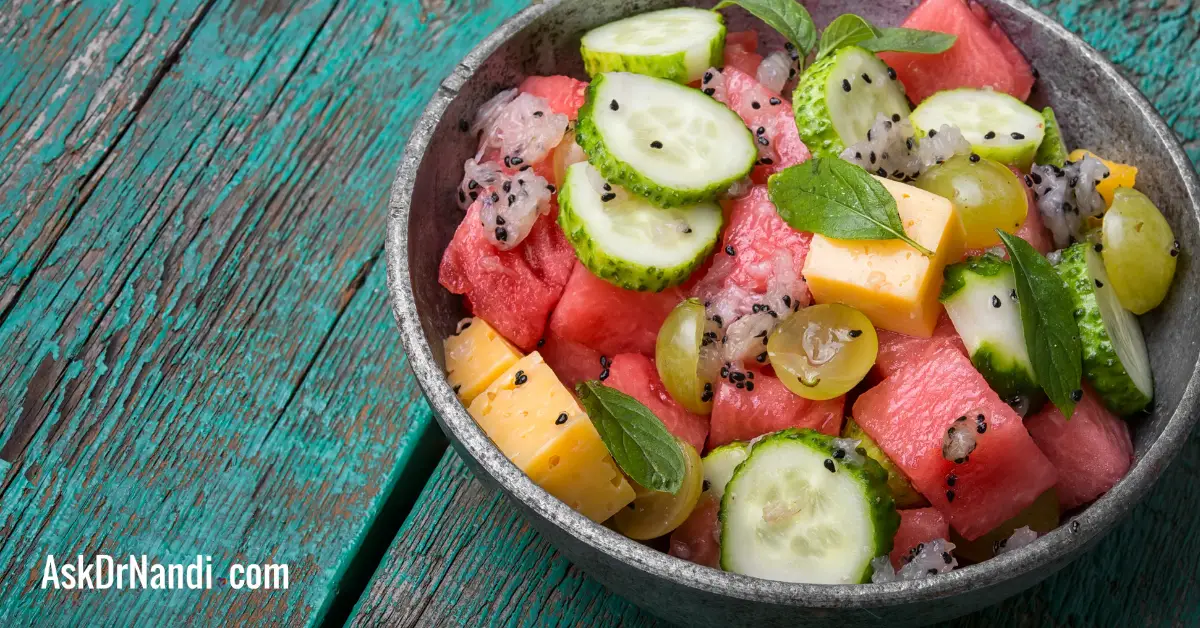 |
Dr. Nandi’s Mango, Cucumber, & Watermelon Salad |




